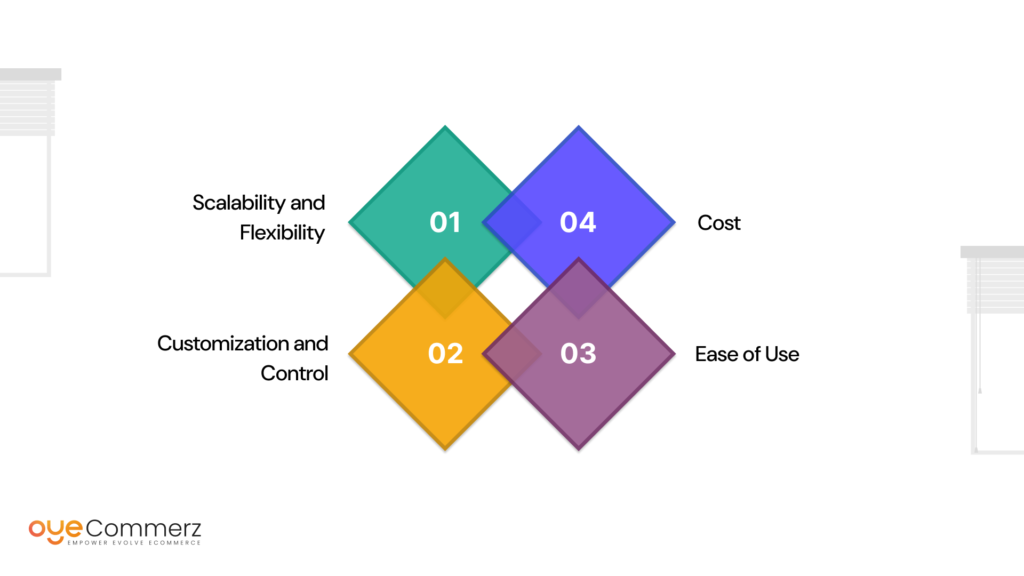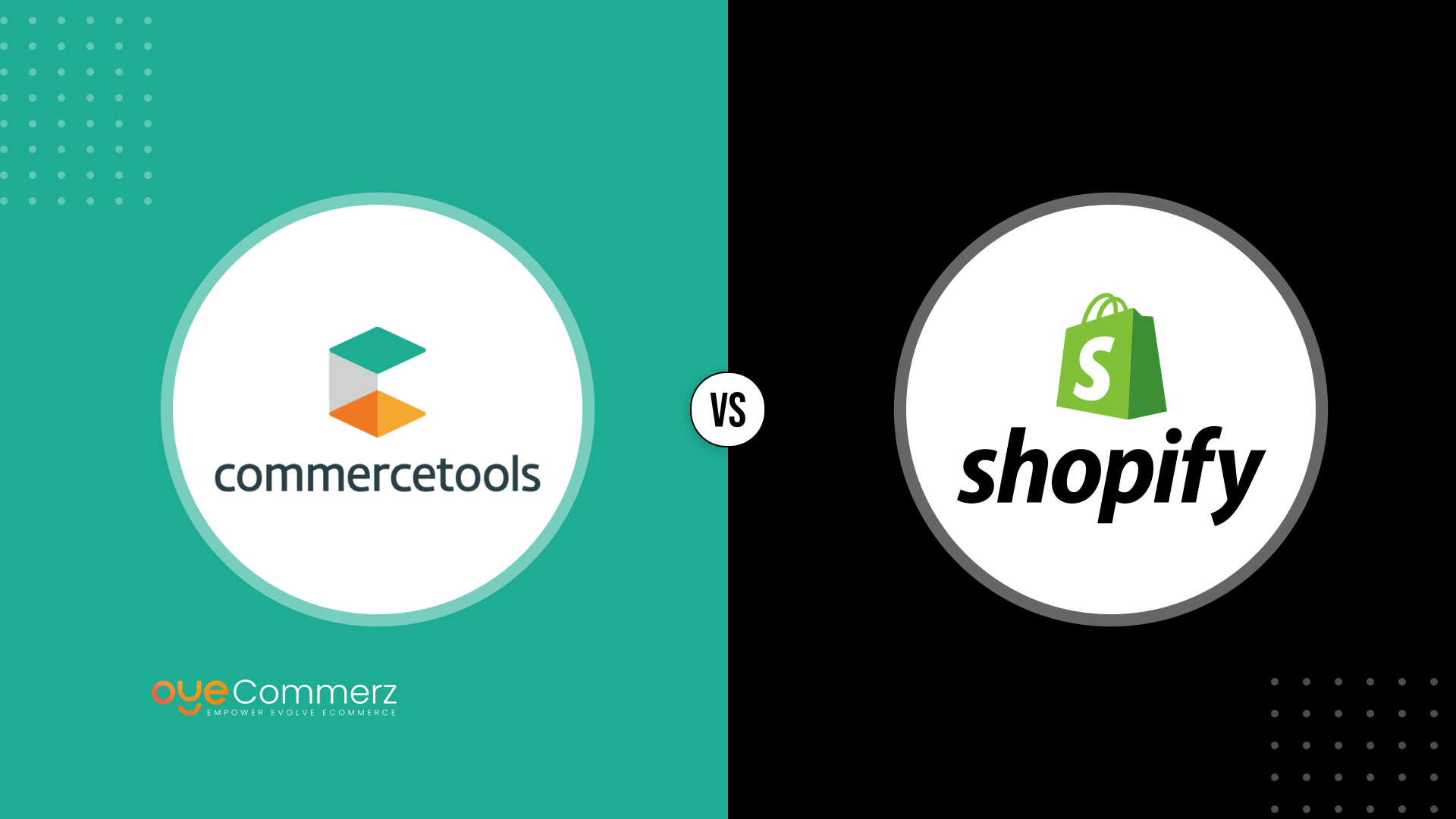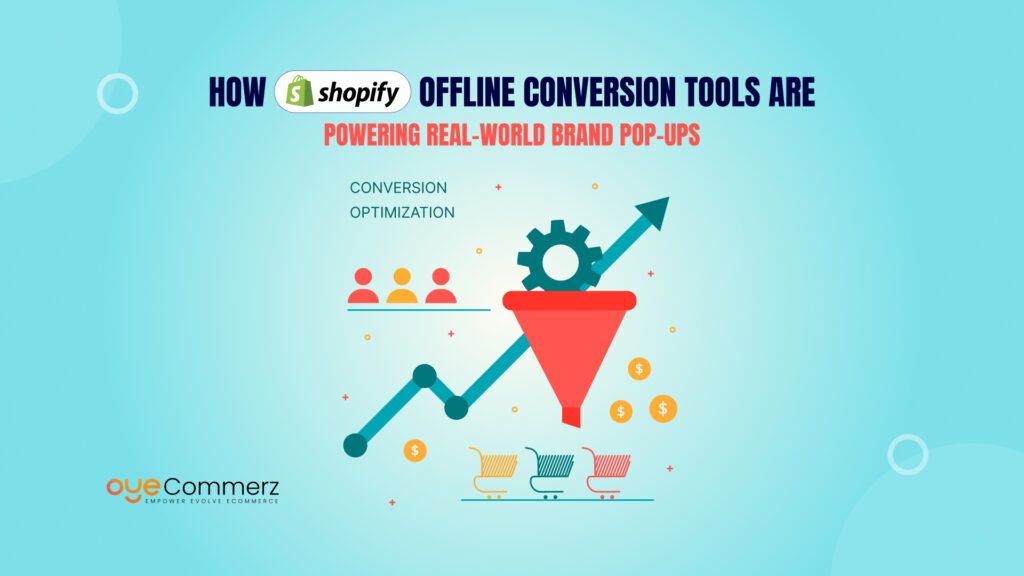Are you an existing or new business owner wondering which platform Commercetools or Shopify can best fuel your enterprise growth? The right choice could significantly impact your revenue, with businesses seeing up to a 35% boost when they align with the right eCommerce solution. Both platforms bring powerful features to the table, but the decision isn’t one-size-fits-all. It depends on your business goals, technical needs, and the customer experience you want to deliver. In this blog, we’ll break down the key differences, benefits, and challenges of each platform to help you confidently choose the one that fits your growth strategy. Let’s find the perfect match for your business!
Commercetools: A Quick Dive into Modern Commerce Solutions
What is Commercetools?
Commercetools is a headless commerce platform designed for enterprises that require full control over their digital architecture. It enables businesses to manage their e-commerce operations separately from the front-end customer experience. As a result, brands can deliver highly customized, scalable digital experiences across various channels, such as mobile apps, websites, and even IoT devices.
Key Features of Commercetools:
- Headless Commerce Architecture: Commercetools operates on a headless framework, meaning the front-end (presentation layer) is decoupled from the back-end (e-commerce functionality). This architecture allows businesses to create custom user interfaces using any technology while still leveraging Commercetools’ robust back-end.
- API-First Approach: Commercetools emphasizes an API-first strategy, giving enterprises the flexibility to integrate third-party applications and services easily. With over 300 APIs available, businesses can connect various microservices and systems to streamline their operations.
- Multi-Region Support: Commercetools offers extensive support for multi-currency, multi-language, and multi-channel operations, making it ideal for global businesses. It allows seamless localization, helping enterprises cater to different markets while maintaining a cohesive backend structure.
Advantages of Commercetools for Enterprises:
- Unlimited Customization: Commercetools provides unparalleled flexibility for enterprises seeking to create unique, branded customer experiences. By decoupling the front-end from the back-end, businesses can build fully custom interfaces and integrate new functionalities without disrupting the core platform.
- Scalability: For businesses looking to expand rapidly, Commercetools’ microservices architecture allows you to scale components independently. This reduces downtime and optimizes performance.
- Omnichannel Capabilities: Commercetools enables enterprises to deliver consistent customer experiences across multiple channels. Whether your business operates on a mobile app, social commerce, or IoT, you can provide a seamless experience for your customers across different touchpoints.
However, with all these benefits come a few potential downsides. Commercetools requires a higher level of technical expertise to implement and manage effectively. If your enterprise lacks the necessary development resources, working with this platform could become a challenge.
Is Commercetools the Best Platform for Enterprise Growth?
For enterprises that prioritize flexibility, customization, and omnichannel operations, Commercetools could be the best platform for enterprise growth. It allows you to build unique solutions tailored to your business needs. Yet, its steep learning curve and reliance on significant development resources can be drawbacks for companies that need to get their e-commerce operations up and running quickly.
Shopify: Your Ultimate Gateway to E-Commerce Success
Key Features of Shopify :
- User-Friendly Interface: Shopify is known for its intuitive user interface, enabling businesses to quickly set up their online store with minimal technical expertise. Shopify maintains this simplicity while offering advanced customization features for enterprise clients.
- Integrated Ecosystem: Shopify has a rich ecosystem of apps and integrations, allowing businesses to extend the platform’s capabilities. From CRM systems to ERP software, Shopify can connect with various business tools to ensure seamless operations.
- Multi-Channel Selling: Shopify supports multi-channel selling across marketplaces like Amazon, eBay, social media, and brick-and-mortar stores through Shopify POS. This omnichannel capability helps enterprises tap into diverse revenue streams.
Advantages of Shopify for Enterprises:
- Fast Time-to-Market: One of Shopify’s biggest strengths is its ability to get businesses online quickly. The platform comes with pre-built themes and easy-to-use tools, allowing enterprises to launch fully functional e-commerce stores in a fraction of the time required by more complex platforms like Commercetools.
- Scalability: Shopify handles high volumes of transactions with ease. For example, Shopify processed over $6.3 billion in sales globally during Black Friday and Cyber Monday in 2022. This proves the platform’s capacity to support large-scale operations and traffic spikes.
- Built-in Security: Shopify takes care of security compliance, offering Level 1 PCI DSS certification. This reduces the burden on enterprises to manage security and compliance, allowing them to focus on growth.
Shopify is ideal for enterprises looking for a scalable, user-friendly platform that can quickly grow alongside their business. However, while Shopify offers customization options through Shopify Scripts and the Shopify API, it does not provide the same level of control or flexibility as a headless platform like Commercetools.
Is Shopify the Best Platform for Enterprise Growth?
For enterprises that prioritize ease of use, speed to market, and robust integration capabilities, Shopify stands out as the best platform for enterprise growth. Its turnkey solution approach enables rapid deployment and scaling without requiring a large development team. For businesses that need high flexibility and customization, however, the headless nature of Commercetools may be more suitable.
Commercetools vs. Shopify: A Head-to-Head Comparison

Scalability and Flexibility
Both Commercetools and Shopify offer enterprise-level scalability, but in different ways. Shopify provides out-of-the-box scalability, handling millions of transactions without requiring complex configurations. This makes it perfect for businesses experiencing rapid growth or high traffic.
Commercetools, on the other hand, offers scalable microservices architecture, which allows enterprises to scale different parts of their operations independently. This level of flexibility is ideal for large enterprises looking to innovate continuously, but it requires substantial development resources and technical expertise.
Customization and Control
In terms of customization, Commercetools is the clear winner. Its headless commerce approach gives enterprises complete control over the front-end experience. You can build custom user interfaces, integrate third-party services, and create unique digital experiences that align with your brand.
Shopify also offers customization but within certain limits. While Shopify Scripts and APIs allow for some level of control, they cannot match the flexibility that a fully headless platform like Commercetools provides.
Ease of Use
For ease of use, Shopify takes the lead. The platform’s intuitive interface and vast app ecosystem make it easy for enterprises to manage their operations without needing a large development team. In contrast, commercetools is are much more complex and require a higher level of technical skill to manage effectively. For enterprises with limited IT resources, Shopify is a more practical choice.
Cost
When comparing Commercetools vs. Shopify in terms of cost, it’s essential to consider both the initial setup and ongoing maintenance. Commercetools can be more expensive due to their need for extensive customization and developer resources. Shopify , on the other hand, is a subscription-based service, with pricing starting at $2,000 per month. While Shopify may seem more affordable initially, costs can rise depending on the level of customization and third-party apps required.
Which E-Commerce Platform is Best for Big Business?
Ultimately, the choice between Commercetools vs. Shopify comes down to your business’s specific needs. If you require complete control over your digital experience, have significant technical resources, and need a highly flexible solution, Commercetools may be the better option. On the other hand, if you’re looking for a platform that provides ease of use, rapid deployment, and scalability with minimal technical effort, Shopify could be the right fit for your enterprise.
Key Takeaways:
- Commercetools: Best for enterprises seeking flexibility, customization, and omnichannel capabilities. Ideal for businesses with strong development teams.
- Shopify: Best for enterprises looking for an easy-to-use, scalable platform with quick time-to-market. Suitable for businesses that prioritize simplicity and built-in solutions.
Ready to Switch to Shopify? Oyecommerz Can Help!
If you’re thinking about moving from Commercetools to Shopify, Oyecommerz has the expertise you need. We specialize in helping businesses of all sizes migrate to Shopify seamlessly. From custom designs to full data migration, we make the transition smooth and hassle-free.
Our team ensures your store is optimized for growth, whether you’re just starting out or scaling your enterprise. Let us help you build and grow your Shopify store with ease.
Contact Oyecommerz today and get started on your Shopify journey!
Contact to Migrate your Site to Shopify Now
Conclusion
Choosing between Commercetools vs. Shopify is a crucial decision that can significantly impact your enterprise’s growth, scalability, and long-term success. While Commercetools offers unmatched customization and control for enterprises ready to invest in extensive development, Shopify provides a simpler, more cost-effective solution with excellent scalability.
Ultimately, both platforms have their advantages, and the choice between Commercetools vs. Shopify should be based on your specific business needs and available resources. If you need expert guidance to navigate the complexities of e-commerce platform selection, Oyecommerz is here to help you find the best solution for your enterprise.




